Latest Archive
Free Newsletter
The Arab League’s decision over the weekend to call for a no-fly zone over Libya is seen as a crucial measure of regional support for such an operation. Some have even argued that a Muslim country must be involved in the mission. In an e-mail interview, Yiftah Shapir, senior research fellow and director of the Military Balance Project at the Institute for National Security Studies, discussed the capabilities of Middle Eastern and North African air forces. WPR: Which countries in the Middle East and North Africa have significant air forces? Yiftah Shapir: There are two large air forces in the […]
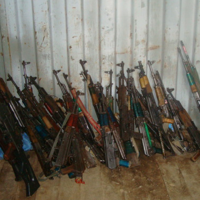
Editor’s note: This is the third of a five-part series examining security and development aid in East Africa. Part I provided an overview of the challenges facing East Africa. Part II examined the overlap between public health and security challenges. Part III examines the overlap between small arms trafficking and WMD nonproliferation. Part IV will examine the overlap between counterterrorism and efforts to contain criminal violence. Part V will provide success stories for the security-development model and discuss next steps. Former U.N. Secretary-General Kofi Annan famously called small arms and light weapons (SALW) “the weapons of choice for the killers […]
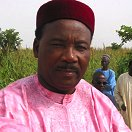
What a difference a year makes. On March 14, provisional results announced by Niger’s electoral commissioner gave veteran opposition leader Mahamadou Issoufou the edge in a presidential poll widely hailed as free and fair and accepted gracefully by his defeated opponent, former Prime Minister Seini Oumarou. The election fulfilled the hopes and anticipations for a strong democratic showing from Niger, which had flirted with chaos after a military coup ousted President Mamadou Tandja in February 2010. Tandja’s desire to remain in office beyond his term was opposed by the armed forces, which had helped him assume power in the first […]
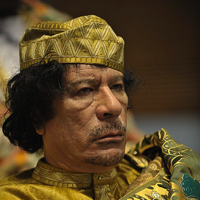
For the authoritarian leader, holding onto power is both an art and a science. Much depends on crafting a strategy to deal with the unique social and political characteristics of a given country. However, autocrats also take cues from events in foreign countries and build their institutions accordingly. Many observers of global politics are watching China and North Korea to see if protests and unrest currently roiling the Middle East will spread there. The leaders of China, Myanmar, North Korea and other authoritarian states are watching North Africa just as closely, in order to learn what to expect next. One […]
Just a few final thoughts on the opportunity I believe we missed in Libya. To begin with, many of the counterarguments to a U.S. military intervention are sound. As I’ve already agreed, a no-fly zone is unlikely to be decisive. The same holds true for a limited air strike of the kind I suggested. The advantage of the latter is that it very clearly signals our support for the anti-Gadhafi forces, who we could then supply with less-visible logistical and material support, while allowing us to avoid the long-term commitment of forces and resources of a no-fly zone. But in […]
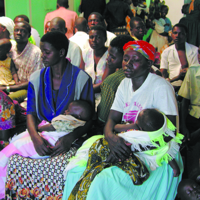
Editor’s note: This is the second of a five-part series examining security and development aid and capacity-building in East Africa. Part I provided an overview of the challenges facing East Africa. Part II examines the overlap between public health and security challenges. Part III will examine the overlap between small arms trafficking and WMD nonproliferation. Part IV will examine the overlap between counterterrorism and efforts to contain criminal violence. Part V will provide success stories for the security-development model and discuss next steps. As the burden of disease declines in much of the world, urbanization and changing lifestyles in Africa, […]
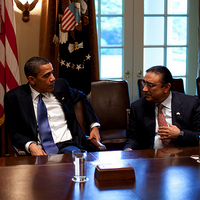
On Jan. 27, Raymond Davis killed two armed Pakistanis in a crowded part of Lahore, firing his Glock pistol nine times through the windshield of his car at the two motorcycle-borne men and landing every shot. He then exited his car to photograph and film the men, who he alleged were trying to rob him. According to autopsy findings, one was still alive when Davis photographed them. A third Pakistani was killed when he was hit by a vehicle responding to Davis’ subsequent call for backup. Both Davis and the backup car fled the scene. The police successfully intercepted Davis […]
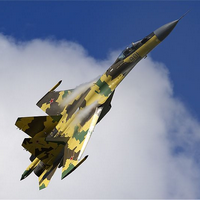
The Russian government recently announced its goals for Russia’s rearmament, with a shopping list that includes 100 ships, 600 airplanes, and 1,000 helicopters over the course of the coming decade. Although these figures make for spectacular headlines, they give a misleading impression of the extent of Russia’s likely military buildup. First Deputy Defense Minister Vladimir Popovkin, who is in charge of arms procurement, confirmed that the Ministry of Defense (MOD) envisages spending roughly $650 billion from 2011-2020 for its new State Armaments Program (SAP), which also includes more than $100 billion for the other Russian security services outside the MOD. […]
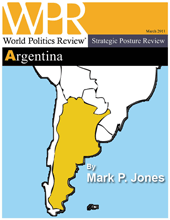
Argentina is a medium-sized country of 41 million inhabitants and moderate global strategic and economic importance. The country’s foreign policy, defense policy and strategic priorities are driven primarily by the domestic political concerns of the country’s political leaders. In addition, the behavior of Argentine politicians is fundamentally guided by a pragmatic approach toward politics, within which political elites are far more concerned about the accumulation of power and the control of politically valuable financial and material resources than with ideology and specific policy goals. What’s more, the time-horizon of Argentine politicians is very limited, with a short-term perspective most commonly […]
The swiftness with which the global media spotlight withdrew from Egypt’s Tahrir Square has been rivaled by the break-neck pace at which Egypt is implementing reforms. In what today’s Washington Post called a “crash course in constitutional confusion,” 40 million Egyptians are expected to vote Saturday on proposed constitutional amendments, the most significant of which would curb runaway executive powers that were exercised for more than 30 years by ousted President Hosni Mubarak. Noting the referendum is “the first in decades that doesn’t amount to a sham,” the Post cited pundits and politicians expressing “deep concern that citizens are ill-prepared […]
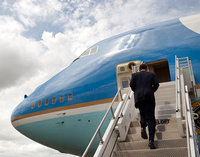
If President Barack Obama’s handling of the events in Libya exemplifies his own definition of a “post-American world,” then we have moved past a G-Zero reality, which is how Nouriel Roubini and Ian Bremmer described a G-20 that can’t agree on how to rebalance global power, and into what I would describe as the “G-Less-Than-Zero” world, where America purposefully abdicates its global leadership role. A realist reading would present Obama as having committed himself to economic renewal at home while contenting himself with just nudging events abroad. Indeed, that’s basically what the buried headline of his 2010 National Security Strategy […]
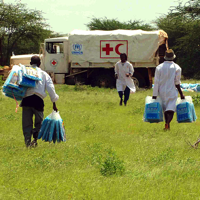
Editor’s note: This is the first of a five-part series examining security and development aid and capacity-building in East Africa. Part I provides an overview of the challenges facing East Africa. Part II will examine the overlap between public health and security challenges. Part III will examine the overlap between small arms trafficking and WMD nonproliferation. Part IV will examine the overlap between counterterrorism and efforts to contain criminal violence. Part V will provide success stories for the security-development model and discuss next steps. According to the World Bank, more than half of the people in sub-Saharan Africa live in […]
Over the weekend, Chinese Premier Wen Jiabao offered a glimpse into China’s apprehension toward the popular uprisings in the Arab world when he rejected comparisons between China and the Middle East. “We have followed closely the turbulence in some north African and Middle Eastern countries,” said Wen, according to the Associated Press. “We believe it is not right to draw an analogy between China and those countries.” His remarks coincided with two worthy op-eds in the U.S. media questioning the likelihood that unrest may spread to China. “The communist government in Beijing is clearly worried,” wrote Francis Fukuyama in the […]
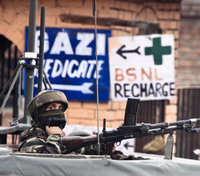
India has vehemently opposed the imposition of a no-fly zone in strife-torn Libya. Though New Delhi supported U.N. Security Council Resolution 1970, authorizing ecomonic sanctions against Col. Moammar Gadhafi and referring Libya to the International Criminal Court, India has made it clear that it stands against any kind of military intervention in the troubled state. However, New Delhi’s aversion to intervention is far from consistent: When it comes to South Asia, in particular, intervention in the internal matters of other states has long been part and parcel of India’s foreign policy. In 1971, India fought a war with Pakistan and […]
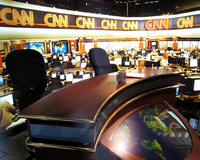
The CNN effect is alive and well in 2011, even if its 2.0 incarnation might now be labeled the Al-Jazeera effect. The fact that U.S. President Barack Obama and British Prime Minister David Cameron are now talking about a “full spectrum of possible responses” to support the opposition to Libyan leader Moammar Gadhafi and NATO is considering endorsing a “no-fly zone” over the embattled North African state — even as the war in Afghanistan rages and Iraq is far from settled — testifies to the ongoing power of the global media to drive even a superpower’s foreign policy agenda. But […]
